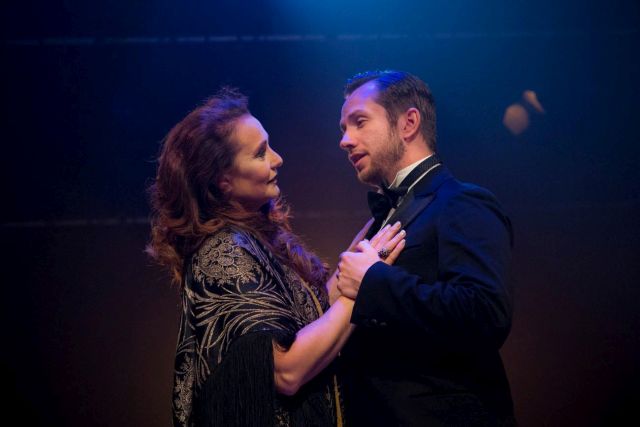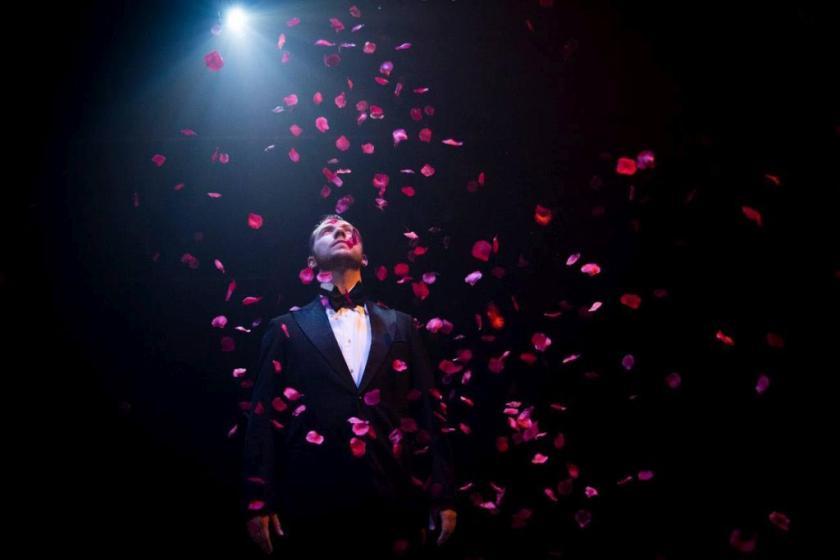Never in a million years would you guess that Grand Hotel – the 1989 New York hit now brilliantly revived at Southwark Playhouse – is one of Broadway's great rescue jobs. That something seemingly so organic, so cohesive, so intricate could have reached the final stages of production in such trouble that even a force of nature like Tony-winner Maury Yeston (Nine) must have wondered it if were salvageable simply beggars belief.
George Forrest and Robert Wright were, of course, famous for recycling other people's music and making hit songs out of hit tunes, but the changes that Yeston made, the new songs and subsequent restructuring, can be equated in my mind with Verdi's wholesale transformation of Simon Boccanegra through the addition, in large part, of a single (albeit inspired) scene. I've watched Yeston at work in the BMI Musical Theatre Advanced Workshop in New York and can vouch for his astonishing nose for what is wrong and how (if at all possible) it might be put right. Sometimes it's a tiny thing, sometimes simply a change of emphasis. You can't buy instincts like that.
And so Grand Hotel found its form, and that form – so manifest in the imperative drive of the ensembles – necessitated yoking a great choreographer to a great director (Tommy Tune combining both roles in the Broadway original, for which Tune won two Tonys) and making physical the intricate counterpointing of characters and their stories. At Southwark, the trick is never knowing where director Thom Southerland leaves off and choreographer Lee Proud steps in and vice-versa.
The seamless symbiosis between them enables us quite literally to see the complex musical counterpoint in action – the way individual narratives coalesce or impact upon each other, to make balletic the feverish comings and goings of a great hotel as it hurtles towards one of the darkest phases in its history: Berlin in the 1920s.
 With limited space and limited budget (nothing like it for concentrating the imagination) – a chequered floor, a chandelier, some chairs – Southerland and Proud quite brilliantly convey the freneticism of a race against time, of changing times, of impending catastrophe. The smell of death is always in the air. Individuals shine – producer Danielle Tarento's casting is very much on the money, with standout turns from an affecting Christine Grimandi as the fading ballerina and Scott Garnham as her impoverished nobleman-lover (the two pictured above) – but it is this mess of humankind in flux that really makes the piece sing. And the singing in this concentrated space is thrilling: such dense and often astringent counterpoint is rare in a Broadway show and definitely sets Grand Hotel apart.
With limited space and limited budget (nothing like it for concentrating the imagination) – a chequered floor, a chandelier, some chairs – Southerland and Proud quite brilliantly convey the freneticism of a race against time, of changing times, of impending catastrophe. The smell of death is always in the air. Individuals shine – producer Danielle Tarento's casting is very much on the money, with standout turns from an affecting Christine Grimandi as the fading ballerina and Scott Garnham as her impoverished nobleman-lover (the two pictured above) – but it is this mess of humankind in flux that really makes the piece sing. And the singing in this concentrated space is thrilling: such dense and often astringent counterpoint is rare in a Broadway show and definitely sets Grand Hotel apart.
There are the inevitable echoes of Kander and Ebb's Cabaret, and Southerland pulls off an absolutely chilling dénouement where the shape of things to come is brought horribly into focus and we the audience are suddenly, unwittingly, complicit. I didn't see that coming.













Add comment